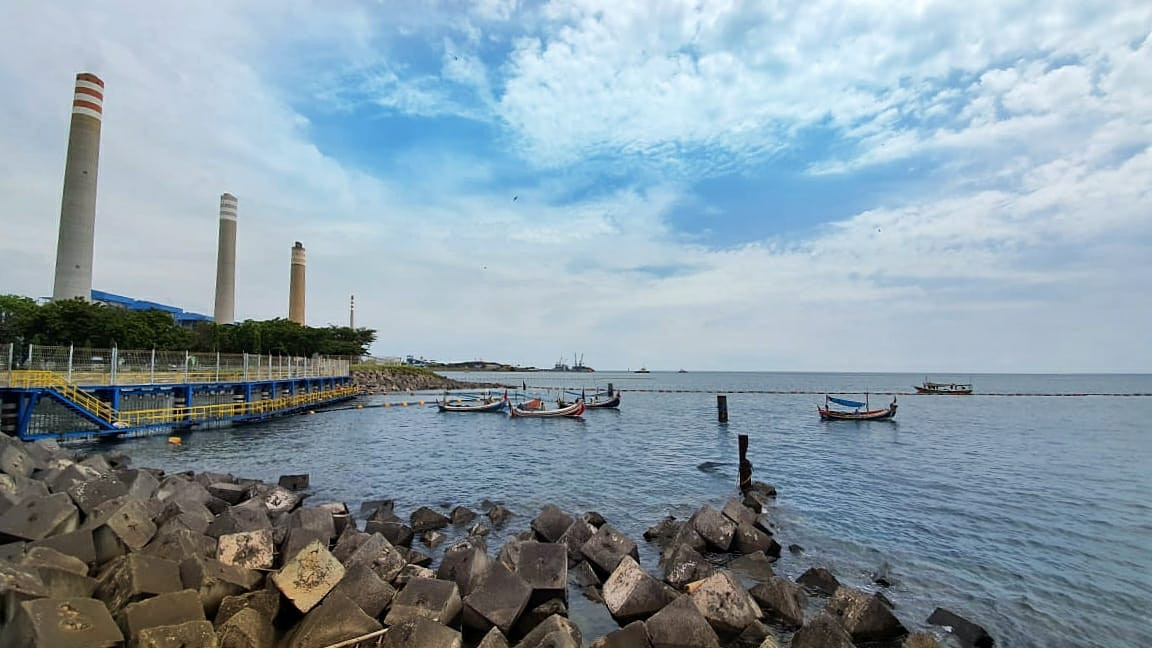Popular Reads
Top Results
Can't find what you're looking for?
View all search resultsPopular Reads
Top Results
Can't find what you're looking for?
View all search resultsEnergy, utility companies cut costs to survive slumping demand
Change text size
Gift Premium Articles
to Anyone
S
tate-owned energy and utility companies are taking measures to cut expenditure and diversify their businesses to survive while the COVID-19 pandemic is battering demand.
With large scale social restrictions (PSBB) in place in major cities, businesses and industries have shut operations and subsequently reduced energy consumption.
Fuel distributor PT Elnusa Petrofin, a subsidiary of state-owned energy services provider PT Elnusa, has shifted its business to liquified petroleum gas (LPG) storage service as its main revenue source, due to slumping demand for fuel.
“As fuel consumption falls, the fuel distribution volume also decreases, and it affects our revenue,” Elnusa Petrofin’s president director Haris Syahrudin said during a discussion held by marketing firm MarkPlus on Tuesday.
According to the company’s data, fuel consumption in major cities has fallen by 54 percent from the normal rate as of late March due to the government’s PSBB order.
The company also projects that Indonesia’s national real fuel consumption will fall to 45 million kiloliters in 2020, down from 75 million kl last year.
Facing such conditions, Haris said the company was relying on LPG storage management services as a new source of revenue, with a storage terminal in North Sulawesi as the operation center.
In contrast to falling fuel demand, national LPG consumption was showing an upward trend of around 1.3 percent, Haris added.
“The biggest contributor is household LPG consumption, which increased by 3 to 4 percent since the government’s work-from-home policy was enacted,” Haris said.
Haris said the company was also taking steps to reduce its cost by increasing its operational efficiency, including by digitizing the fuel purchasing system for its customers.
“After the pandemic, we need to have a new method of work, new technology and new cost standards in order to maintain our competitiveness,” he said.
Similarly, Surabaya-based power producer PT Pembangkitan Jawa Bali (PJB) is taking far-reaching steps to reduce its operational costs as electricity demand falls.
State-owned electricity firm and PT PJB’s parent company PLN has projected that electricity demand will be 9.7 percent below the initial target, as emergency measures imposed by the government to halt the spread of COVID-19 had paralyzed many business activities.
With falling demand, PLN’s revenue is expected to reach Rp 257 trillion (US$17.2 billion) this year, 14.7 percent below the initial target of Rp 301 trillion.
To make up for the revenue decline, PT PJB will use cheaper, low-quality coal to fuel its power plants to cut operational costs, according to the company’s president director Iwan Agung.
The company is aiming to reduce its annual cost by Rp73.3 billion starting from 2020, through changing its fuel into low-grade 4,000kCal/kg coal from the previous higher calorie coal of 4,500kCal/kg.
“We have to revise our strategic initiatives and focus on increasing our efficiency to wither the COVID-19 crisis,” Iwan said during the discussion.
“Even though the low-calorie coal could cause our energy production capacity to decline, it's still acceptable, since we are facing oversupply of electricity on the island of Java,” he added.
PT PJB is also developing its asset management services by launching a “franchising system,” where the company aims to increase its cost efficiency by centralizing its maintenance and management units.
Currently, PT PJB has 32 maintenance units that are located in each power plant under PJB’s management. Iwan projected that the new system could reduce the overall cost by 20 percent, as no more expert staff would be needed at each power plant.










